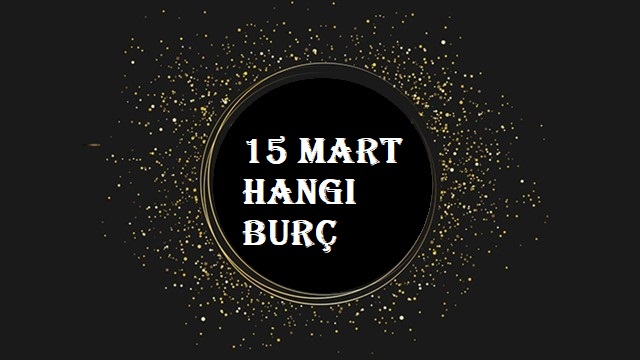Ramaphosa's White House Encounter: Exploring Other Possible Responses

Table of Contents
A More Assertive Approach: Challenging US Hegemony
One potential alternative to Ramaphosa's approach would have been a more assertive stance, directly challenging certain US policies and perspectives. This strategy carries both significant benefits and considerable risks. By directly addressing concerns about US influence in Africa, Ramaphosa could have positioned South Africa as a leader in advocating for a more equitable global order.
- Directly addressing concerns about US influence in Africa: This could involve openly criticizing specific US interventions perceived as detrimental to African interests.
- Highlighting the importance of multilateralism and BRICS: Emphasizing the role of BRICS as a counterbalance to US-led institutions could strengthen South Africa's position within the emerging multipolar world.
- Emphasizing South Africa's independent foreign policy: A stronger assertion of non-alignment would signal South Africa's commitment to its own national interests.
However, such an assertive approach carries significant risks:
- Potential repercussions: Strained relations with the US could lead to reduced aid, sanctions, or other diplomatic pressure. This could negatively impact South Africa's economic development and international standing.
Emphasis on Economic Diplomacy and Mutual Benefit
An alternative strategy would have prioritized economic diplomacy, focusing on collaborations that offer mutual benefits for both South Africa and the United States. This approach centers on strengthening economic ties and highlighting the shared interests between the two nations.
- Focusing on trade agreements and investment opportunities: Ramaphosa could have leveraged the meeting to negotiate favorable trade agreements and attract significant US investment in South Africa.
- Presenting South Africa as a key investment partner in Africa: Positioning South Africa as a gateway to the African market could attract substantial foreign direct investment.
- Negotiating favorable terms for trade and development aid: This would ensure that any agreements reached benefit South Africa equitably.
The potential positive outcomes of this strategy include:
- Increased investment: Attracting US investment could stimulate economic growth and job creation in South Africa.
- Economic growth: Strengthened economic ties could lead to sustained economic development and improved living standards.
Strengthening Pan-African Solidarity
Another possible response would have involved using the White House encounter as a platform to strengthen ties among African nations and present a unified front on global issues. This approach leverages the collective strength of African nations to negotiate more favorable terms on the international stage.
- Highlighting shared African interests and challenges: Ramaphosa could have emphasized common goals and challenges faced by African nations, fostering a sense of unity and shared purpose.
- Advocating for greater African representation in international forums: A united African voice carries more weight in international negotiations and decision-making processes.
- Promoting collaboration on trade, security, and development: Strengthened regional cooperation can lead to better outcomes for all African nations.
The potential benefits of this approach include:
- Enhanced African influence: A unified African bloc holds greater influence on the global stage.
- Stronger negotiating power: Collective action allows African nations to negotiate more favorable terms with external partners.
Utilizing Public Diplomacy and Soft Power
Ramaphosa could have also employed public diplomacy to shape perceptions of South Africa and its role in the world. This involves engaging with US society directly to foster better understanding and build relationships.
- Engaging with US civil society organizations and media: Direct interaction with key influencers can help shape positive narratives about South Africa.
- Promoting South Africa's culture and values: Showcasing South Africa's rich cultural heritage can foster goodwill and strengthen international relationships.
- Highlighting successes in social and economic development: Demonstrating progress in areas such as poverty reduction and education can improve South Africa's international image.
Potential outcomes include:
- Improved public perception: Positive engagement can lead to a more favorable view of South Africa in the US.
- Strengthened relationships: Building trust and understanding can lay the groundwork for stronger bilateral ties.
Conclusion
Ramaphosa's White House encounter presented complex challenges demanding nuanced diplomatic strategies. The alternative approaches explored—a more assertive stance, an emphasis on economic diplomacy, strengthening Pan-African solidarity, and utilizing public diplomacy—each present potential advantages and disadvantages. Analyzing Ramaphosa's White House visit reveals the multifaceted nature of international relations and the importance of carefully considering various strategic options. Understanding the implications of the Ramaphosa-Biden meeting requires further investigation into South Africa's foreign policy and the complexities of US-Africa relations. We encourage readers to engage further with these issues by researching South Africa's foreign policy, reading analyses of Ramaphosa's leadership, and exploring the complexities of US-Africa relations. Further discussions on Ramaphosa's White House encounter are crucial for understanding the ongoing impact of this significant event on the global stage.

Featured Posts
-
 When To Fly Around Memorial Day 2025 Avoid Crowds
May 24, 2025
When To Fly Around Memorial Day 2025 Avoid Crowds
May 24, 2025 -
 Re Energizing Relations Bangladeshs Focus On Growth Through European Collaboration
May 24, 2025
Re Energizing Relations Bangladeshs Focus On Growth Through European Collaboration
May 24, 2025 -
 Amsterdam Stock Market 7 Opening Plunge Reflects Trade War Anxiety
May 24, 2025
Amsterdam Stock Market 7 Opening Plunge Reflects Trade War Anxiety
May 24, 2025 -
 Dreyfus Rehabilitation A Century Long Struggle For Justice In France
May 24, 2025
Dreyfus Rehabilitation A Century Long Struggle For Justice In France
May 24, 2025 -
 Sean Penns Recent Appearance And Controversial Statements Explained
May 24, 2025
Sean Penns Recent Appearance And Controversial Statements Explained
May 24, 2025
Latest Posts
-
 Hangi Burc 16 Mart 16 Mart Doganlarin Burc Oezellikleri
May 24, 2025
Hangi Burc 16 Mart 16 Mart Doganlarin Burc Oezellikleri
May 24, 2025 -
 Londons Odd Burger A Nationwide Vegan Menu Available At 7 Eleven Stores
May 24, 2025
Londons Odd Burger A Nationwide Vegan Menu Available At 7 Eleven Stores
May 24, 2025 -
 Vegan Food Revolution Odd Burgers Canadian Expansion With 7 Eleven
May 24, 2025
Vegan Food Revolution Odd Burgers Canadian Expansion With 7 Eleven
May 24, 2025 -
 Mayis Ta Ask Yagmuru Bu 3 Burc Sansli
May 24, 2025
Mayis Ta Ask Yagmuru Bu 3 Burc Sansli
May 24, 2025 -
 Askin Kapida Oldugu 3 Burc Mayis Ayi Ask Fali
May 24, 2025
Askin Kapida Oldugu 3 Burc Mayis Ayi Ask Fali
May 24, 2025
